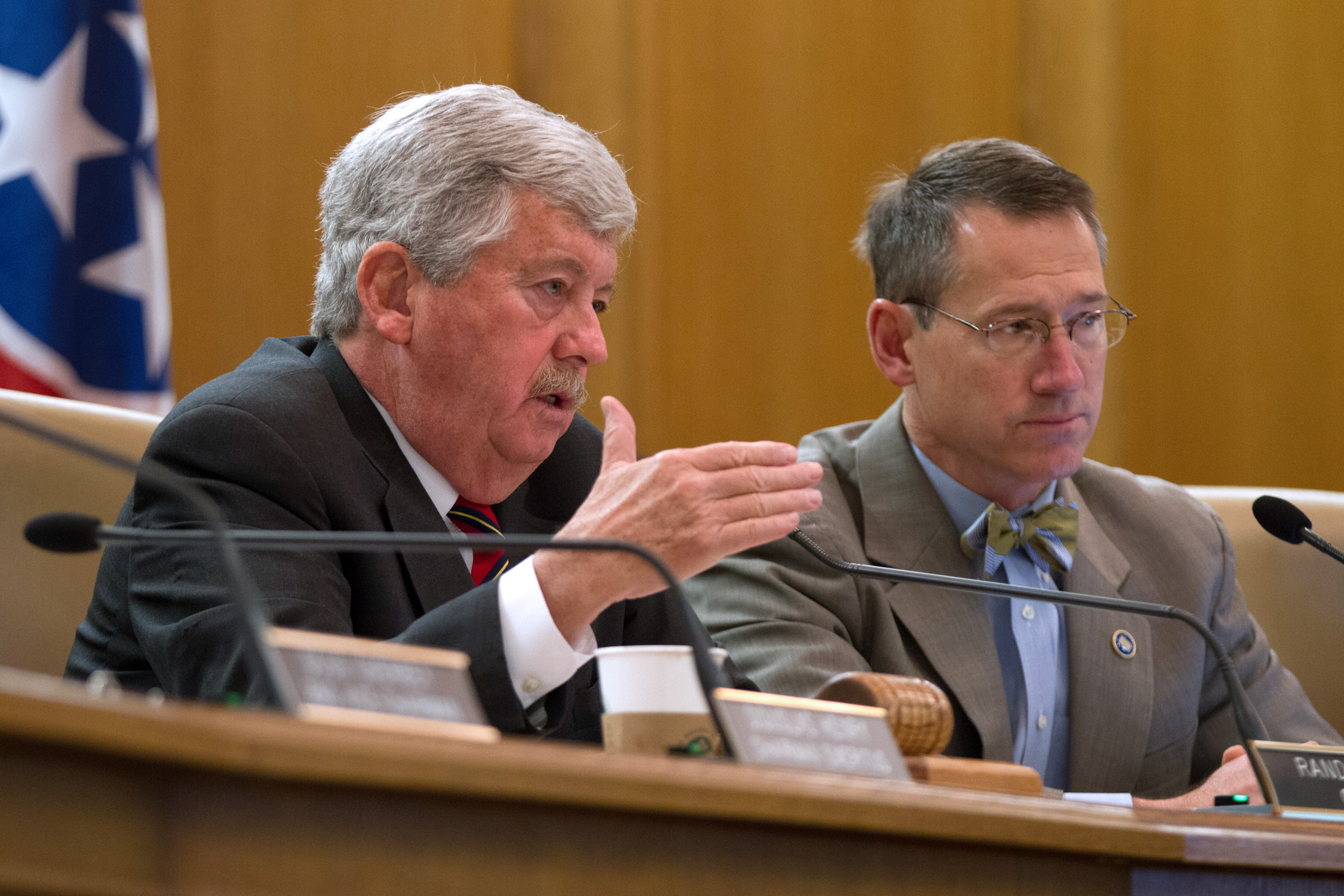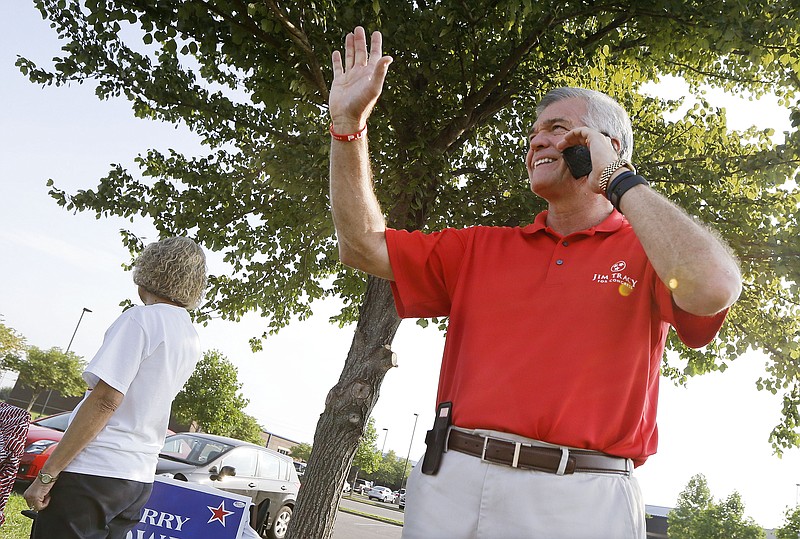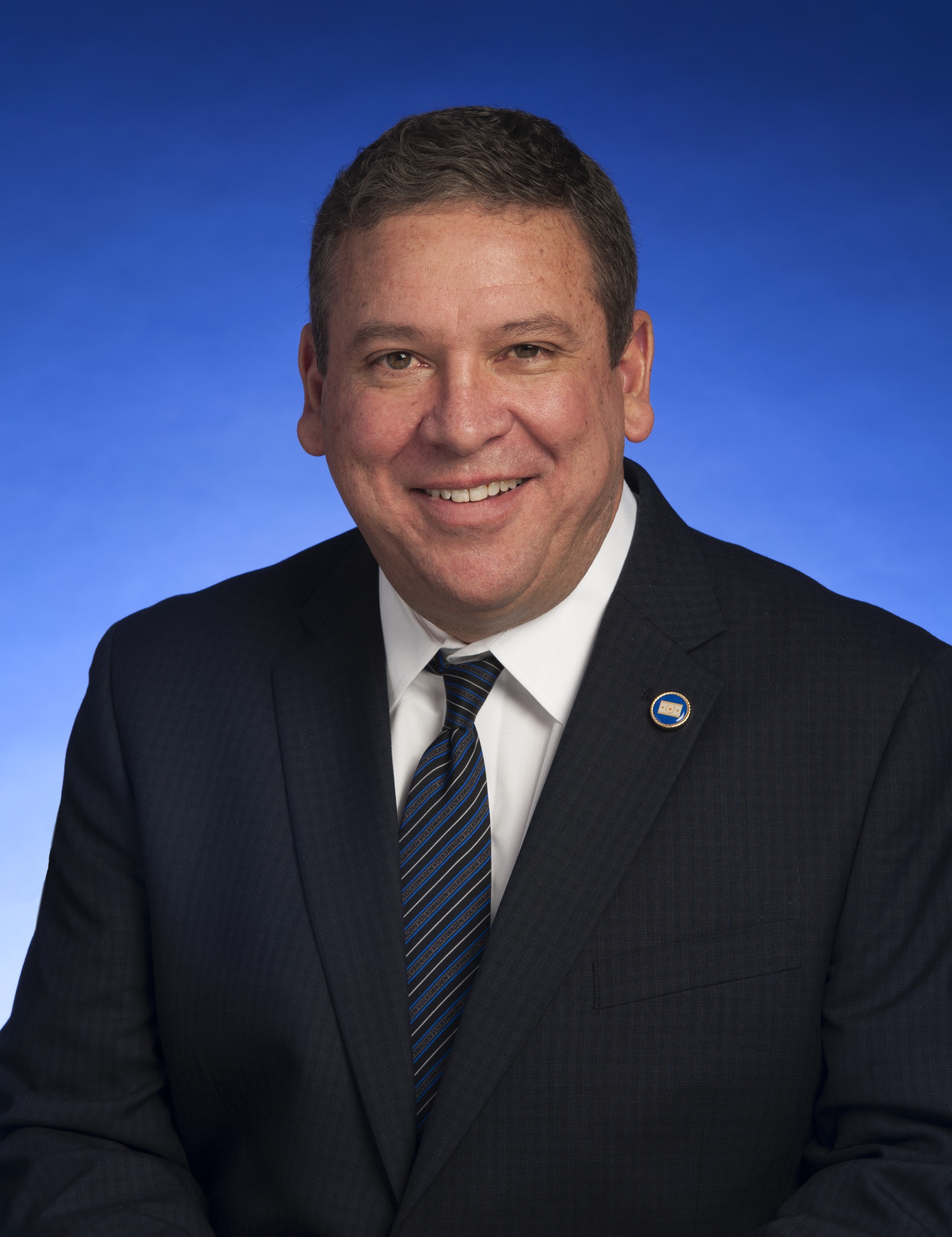 Tennessee Senate Finance Chairman Randy McNally of Oak Ridge, left, and fellow Republican Sen. Bo Watson of Chattanooga participate in a hearing in Nashville on Tuesday on a proposed constitutional amendment to ban a state income tax . The Finance Committee voted 9-1 to advance a proposed constitutional amenkdment to a full Senate floor vote.
Tennessee Senate Finance Chairman Randy McNally of Oak Ridge, left, and fellow Republican Sen. Bo Watson of Chattanooga participate in a hearing in Nashville on Tuesday on a proposed constitutional amendment to ban a state income tax . The Finance Committee voted 9-1 to advance a proposed constitutional amenkdment to a full Senate floor vote.NASHVILLE - House Majority Leader Gerald McCormick's suggestion that fellow Tennessee lawmakers first consider having the state issue bonds to fund transportation needs before hiking gas taxes struck a pothole with some colleagues on Tuesday.
Senate Finance Committee Chairman Randy McNally, R-Oak Ridge, and Senate Transportation Committee Chairman Jim Tracy, R-Shelbyville, said issuing debt through bonds "is not the answer to Tennessee's road funding dilemma."
Speaking to the Hamilton County Pachyderm Club on Monday, McCormick, a Chattanooga Republican, said something must be done to ensure the state's roads and bridges remain in good shape and improvements continue.
"We have always paid as we went," McCormick told the Republican group. "Some states issue bonds for these things - I don't know if we want to do that. I'm not advocating that, but it's something we need to consider before we go for a big tax increase. And it would not be a penny increase, it would be a very large increase."
Tracy said "we are not advocating a tax increase as the alternative, but road debt would be the worst thing we could do."
The senator also noted Tennessee is "one of only five states in the nation that does not have debt on their roads and that is a key reason that we are ranked among the top in the nation for our sound financial practices."
McNally said "road debt is off the table as far as I am concerned. It would be fiscally irresponsible and would damage the state's credit rating which we have worked so hard to build up. Debt is not the answer. That is the way of Washington, not Tennessee."
Seeking to "clarify" Monday comments to fellow Republicans at the Pachyderm Club, McCormick issued a statement saying that "in no way am I advocating for our state to take on debt to fund construction on our roads and bridges.
"I was simply stating that option might need to be part of a larger conversation to address the problems that we are encountering with the shortfall in funds for transportation projects that impact all Tennesseans," McCormick added. "That being said, I firmly believe that a tax increase should be the absolute last resort and is by no means a foregone conclusion."
Tennessee has historically been a pay-as-you-go state on transportation projects. But the state's 21.4-cents-per-gallon tax hasn't been raised in 26 years. And because cars and trucks have become more fuel-efficient and there are more electric vehicles on the road, the state is unable to raise as much per vehicle as it once did, officials like Republican Gov. Bill Haslam say.
Still, no one is publicly announcing a push for an increase in 2016, an election year. Haslam has said he intends to travel the state this summer to explain the situation. But Americans For Prosperity-Tennessee's chief Andrew Ogles said he intends to have his own state tour in opposition.
Part of states' problem is that Congress is at a standstill when it comes to a new federal transportation bill to address federal funding problems.
Eight states, seven of them headed by Republican governors, have passed state increases, according to Stateline, an online service of the nonpartisan Pew Charitable Trusts which covers state issues.
Among them was Georgia where Gov. Nathan Deal and fellow Republicans in the legislature approved a major revamp of fuel-related taxes along with an increase.
Starting July 1, Georgia consumers went from paying 19 cents or so per gallon based on a combined 7.5-cent excise tax and 4 percent sales tax to a single 26-cent-per-gallon excise tax.
That comes to about a 6- to 7-cent increase in the wholesale price-per-gallon for gasoline, the Atlanta Journal Constitution has reported.
But there's more than that, Stateline reported. Future increases factor in inflation and fuel-efficient cars, two of the major problems. Moreover, Georgia now imposes a $200 annual fee on electric vehicles plus a $5 per-night fee on hotel and motel stays with the money going to transportation.
The state is also assessing an annual weight-based fee on trucks that ranges from $50 to $100. All told, the changes are expected to generate $1 billion in new revenue a year.
Deal and fellow Republican lawmakers paved the way with lawmakers creating a joint study committee. Georgia Transportation Department officials, meanwhile, showed that despite having the nation's 10th busiest road system and fourth-busiest container port, 48 states spent more money per capita on their roads than Georgia.
Contact Andy Sher at asher@timesfreepress.com or 615-255-0550.

